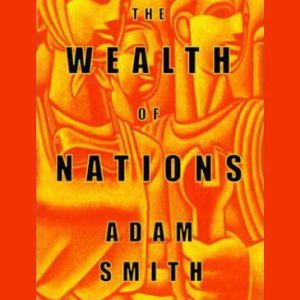

The Wealth of Nations
Author: Adam Smith
Narrator: Unknown
Unabridged: 6 hr 11 min
Format: Digital Audiobook Download
Published: Not Available
Categories: Nonfiction, Business & Economics
Synopsis
An Inquiry Into the Nature and Causes of the Wealth of Nations is the complete title of this book and it was first published in 1776, the same year that the American colonies declared their independence from Britain. It's interesting to note that Adam Smith once suggested to British authorities before this year that they should let the colonies be represented in the British parliament because of the contributions they give to the British Empire. But as we all know, they didn't follow his suggestion and the Americans in defiance of British rule declared their independence. Experts at the time argued that if the British only followed Smith's suggestion, the American Revolution wouldn't have happened.